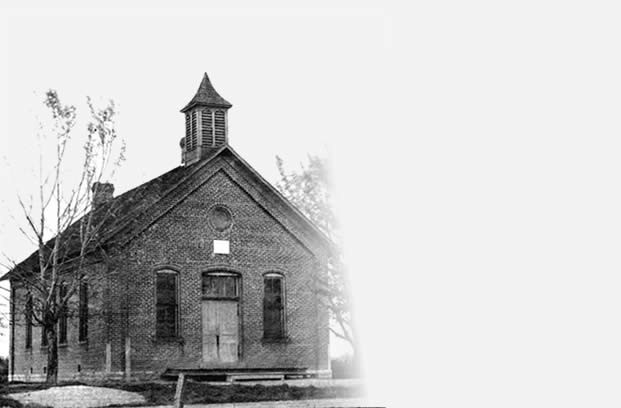Fred A. Grewe, former Teacher, Thinks McGuffy’s Readers Topped Today’s in Their Moral Worth
“Strike three,--and YOU’RE OUT.” Anyone who heard and saw six-foot-two Fred A. Grewe of New Knoxville umpire a ball game at the old New Knoxville diamond is not likely to forget him. And the hundreds of folks now scattered all over the country whom he taught during his thirty six years as a public school teacher will never forget his classroom wit and wisdom, his appreciation when progress was made in their studies, nor the accusing finger of Mr. Grewe pointing at the perpetrator of some mischief. Many others remember him for asking questions in Socratic fashion sometimes to the discomfort of the person being asked.
We are almost bursting to tell some of the anecdotes from school that he related concerning some of our now dignified and prominent citizens, but that would be telling tales out of school. Equally interesting were his recollections regarding the “Spelling Schools” with the opposing sides being lined up along the wall, the “cyphering matches” and some of the tricks connected therewith, the “box socials” with the attending spirited bidding between rivals for some popular belle. He was the only grade-school teacher that some of his pupils ever had. He named many of them for their Boxwell examination (the county high-school entrance examination of the period).
Mr. Grewe prepared himself for the teaching profession at Ohio Normal University at Ada, Ohio and began teaching at the Shinbone School at a salary of $37.50 per month. “This figure however needs explanation,” Mr. Grewe said. “While I was teaching a farmer wanted to hire me for the summer months at $11.00 per month and there were 13 applicants for the job.”
He taught two years at Shinbone, ten years at Cleardale School located across from the Feil Homestead, and three years at the Cloverleaf School opposite the Lutterbeck farm. Of these the last two have been torn down and the first converted to farm purposes. He taught fifth and sixth grade in the New Knoxville school for 19 years and was tax assessor for ten years. In addition, until 1923, he farmed out possibly the largest “belling party” in the history of the community.
Both having been school teachers we were not surprised to find the literary equipment of their home of a high order, and their range of interests wide. I thoroughly enjoyed the two scrap-books which he kindly lent me. How I’d like to share their miscellany with you. News clippings are rather rare therein but human interest items, humor and poetry predominate. Hours of delightful reading still await me with them and they possibly partially account for Mr. Grewe’s wry, sly humor.
We asked his opinion regarding the McGuffy School Readers. Now he was in his element. “I frankly do not think that any modern school readers surpass them in total worth. The readers of today lack moral teaching,” he believes. Thereupon he laid before me an armful of the readers and bade me examine them. “Turn to page so-and-so in such-and-such edition” he would say, and then quote the poem from memory. I could have listened to him all day as he recited from memory, citing book and page.
“Would you care to tell us something of your philosophy of life?” I asked. in reply he told of the little laddie who brightened their home for 5 years, to whom he would read and to whom they had taught a poem expressive of their own life philosophy, beginning with:
“The world is so full of beautiful things
That we should all be as happy as kings”
And how they had sought to teach him to:
"Look for goodness, look for gladness
You will find them all the while
If you bring a smiling visage
To the glass, you meet a smile.”
Both Mr. and Mrs. Grewe take active part in the affairs of their church and community, Mrs. Grewe being the local librarian. He wouldn’t tell us his own business connections nor some other things but we happen to know that he’s president of the New Knoxville Telephone Co., and that they made an European tour in 1929. Upon leaving I called attention to the neatly stacked supply of fire wood and the stack of uncut wood nearby.
“That’s where I get my daily dozen”—said Mr. Grewe smiling. “It would be good for you too!”—pointing to the sawhorse standing alongside. He takes pride in the fact that he cuts and gathers his own fire wood and delights being in his woods where he allows no living tree to be cut down.
It was nice visiting with you, Mr. Grewe. I hope to continue the visit when I return your scrap books!
Living Biographies
by Andrew Kay
In 1949 and 1950, Reverend Edwin Andrew Katterhenry (1900-1963), a minister and a native of New Knoxville, wrote the “Living Biographies” feature for the St. Marys Evening Leader under the pen name of Andrew Kay. These articles consisted of interviews with aging citizens, many from New Knoxville and St. Marys, relating their experiences from their younger days. After Rev. Katterhenry passed away in 1963, his widow, Florence Katterhenry returned to New Knoxville to live out the remainder of her years until 1982. For those of us who are grandparents today, we remember her as “Mrs. K”. In the final “Living Biographies” article Andrew Kay wrote about himself, thus revealing his identity to the general public.


